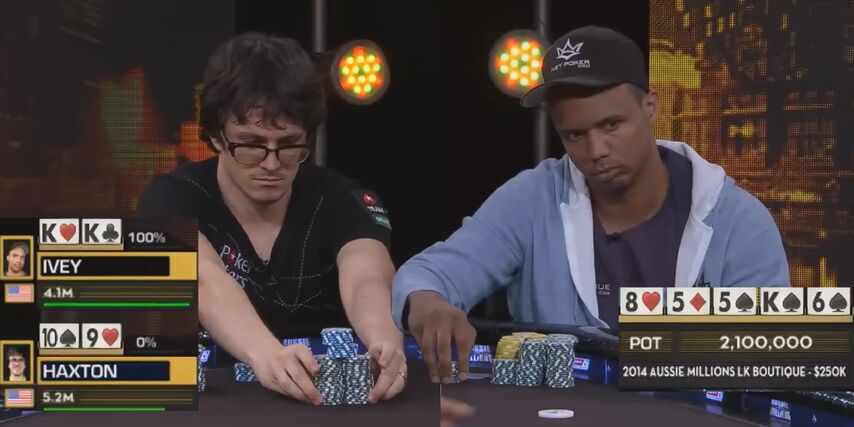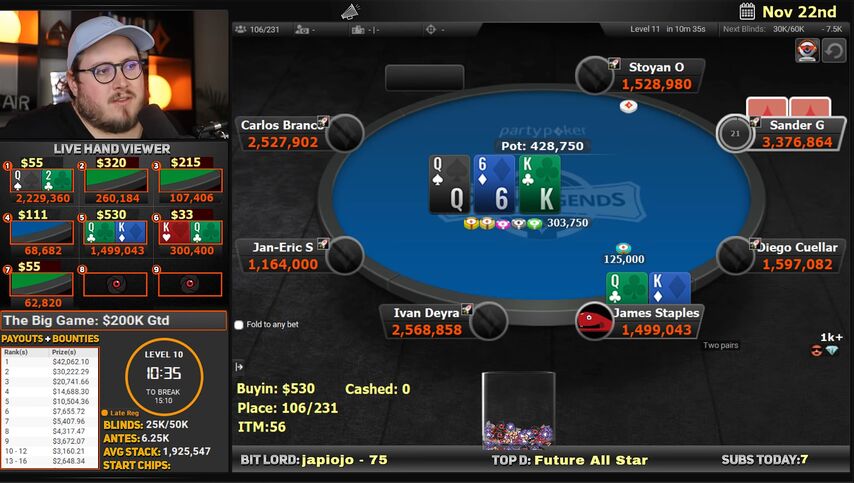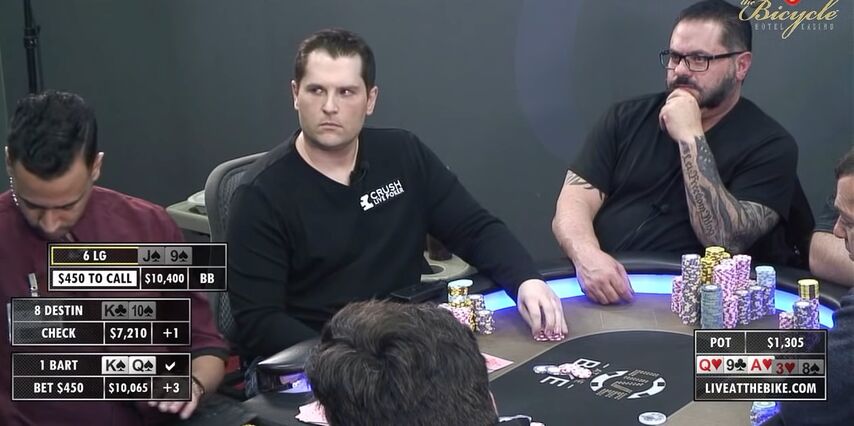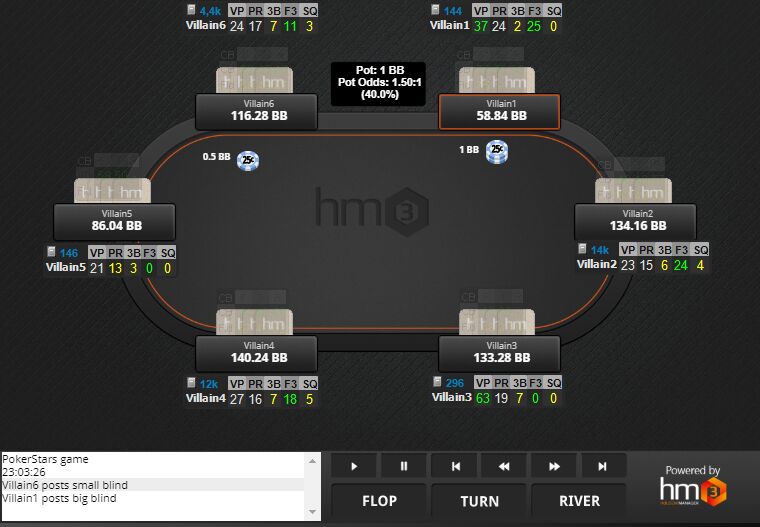What is the value in poker and where can you find it?
Value in poker comes from making bets and opponents matching those bets. By the end of the hand, you want those chips in your chip stack. Many poker players, especially beginners, make bets without having a solid strategy. If you bet without a plan, you will probably miss lots of value over your poker career.
Winning a hand of poker is great, but could you have gotten more value? If you continue missing value in the same scenarios, you’ll be waving goodbye to a lot of profit.
This guide will teach you to think differently about betting for value. We’ll be talking about betting to target specific ranges, getting “thin” value, and other valuable poker strategies.

Value Betting Basics: How to Visit Value Town
If you want to go on a trip to “Value Town” with your opponent, the first thing you need to do is change how you think about betting.
When you bet, you give your opponents a choice. You’re essentially asking them, “Do you want to continue? Here’s the price”.
When you are value betting, you need to think harder about this. Instead of “I hope my opponent calls my bet”, you should be thinking, “Which hands can I get value from?”
Making your bet the right size for your opponent’s hand is called “pricing them in”. You’re setting a reasonable price for them to continue in the hand.
Value Betting When You Have a Strong Hand
Time for an example. We’re going to use this screenshot from a partypoker Daily Legends MTT (multi-table tournament).

Jamie Staples is a partypoker ambassador, so he knows a few things about value bets. He’s betting small on this flop, around 40% of the pot size. He will be called my many weaker hands and some open-ended straight draw hands like J-10 or A-J.
His opponent continued to call small bets until the river, where he folded to Jamie’s bet. His bets likely induced a weak hand to call, like a middle or low pair, or some kind of straight draw.
When you have a strong hand, you want weaker hands to call your bets. This means you need to consider what bet sizing is correct.
Jamie Staples is usually playing partypoker’s high-stakes tournaments, but the site has an impressive lineup for low and mid-stakes buy-ins too. We recommend the Daily Legends series.
The Daily Legend tournaments are known for having the best buy-in to prize pool ratio on the poker site. There’s The Terminator, with a $1,000 guarantee for an $11 buy-in, or The Gladiator tournament with a $1500 GTD for a $55 fee.
Let Your Opponent Bet and Create Value For You
With aggressive opponents, you might get even more value by letting them bet. Of course, this strategy works best when you act after your opponent.
When you are out of position and have to act before your opponent, you might lose value on the river. The risk is that your opponent might check after you check. To avoid this, you can think about making a small bet on the river, instead of letting them check for free.
In this America’s Cardroom tournament, you’ll see the top two-pair getting value from top pair.

Before you set this plan in motion, you’ve got to know your opponent a little bit.
For online poker games, we highly recommend using a HUD (heads-up display). You need to be using all the information you can to make decisions, which is why HUDs are useful. Players get to see data about their opponents in real-time, like how often they raise preflop, continuation bet, 3-bet, and much more.






Value Betting When You Have a Weak Hand
One thing that prevents many poker players from getting their full value is playing too tight. Players who are too tight bet conservatively, even when they are way ahead of their opponent.
But sometimes, you won’t be way ahead. There is still a massive amount of value you can get from betting low pairs, middle pairs, and even Ace-high.
This comes more with experience and knowing the habits of your opponents.
Great poker players go for “thin value”, meaning that they are value betting with a low or medium-strength hand. The only way they can do this is by putting their opponent on a range and following a plan.

If you aren’t familiar with how ranges work in poker, you need to get up to speed. It’s not about the singular hand your opponent has, it’s about all the hands they could have.
Flopzilla is one of the quickest ways to teach you about how ranges work in poker. You’ll be able to build ranges for yourself, load preset ranges, and see how they interact with community cards. By using Flopzilla for a while, you’ll be thinking about poker the same way professionals do.
Flopzilla is super-affordable and you can start a month-long free trial to test it out.
Using VPIP Stats in Online Poker Games
Tight players lose value based on their reputation too.
At an online poker table, tight players are easy to notice – if you are using a HUD. There’s a stat called VPIP, meaning Voluntarily Put In Pot. This shows you how often a player plays their cards.
Many poker pros agree that your VPIP for cash games should be anywhere from 15%-25%, depending on how many players are at the table (and other factors). The fewer players at the table, the higher your VPIP can be.
In the screenshot below, you’ll see a HUD from a tool called Holdem Manager 3 that works in most online poker rooms.

Let’s say that your opponent has a 5%-10% VPIP. In general, this is a red flag for savvy players. A player with a tight VPIP will often lose value, because of their extra-strong range (possible hands a player can have).
It’s important to mix up your range and avoid only playing strong hands. If you are too tight, your opponents will escape and deny your value. Why would they play against your strong range of hands, when they can play against the wider range of other players?
Practice mixing things up in a freeroll tournament so that these lessons don’t cost you anything. You’ll still have the chance to win real money prizes and large tournament tickets, plus you’ll be working on your poker skills.
During the freeroll tournament, try to keep your VPIP somewhere around 15%-20%.
- Increased first deposit bonus
- Increased rakeback and reloads
- Help with deposits and cashouts
- Access to private freerolls
- Round-the-clock support





















